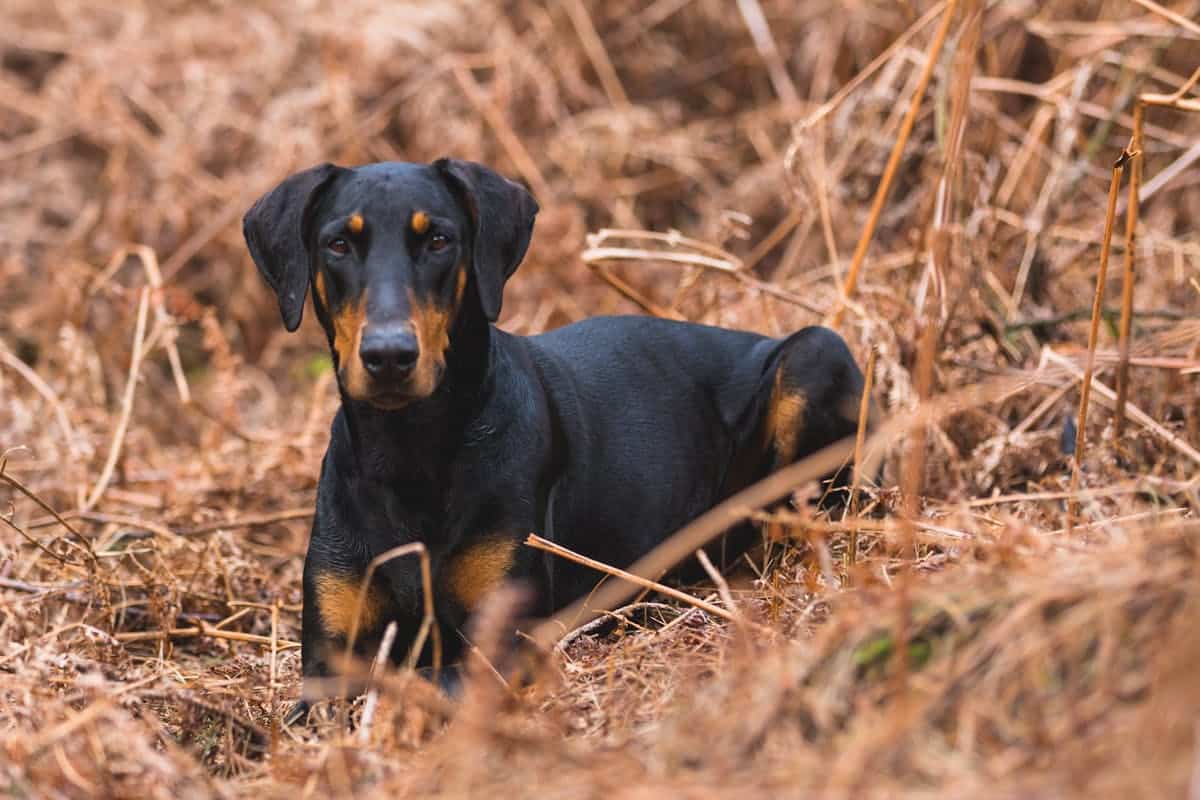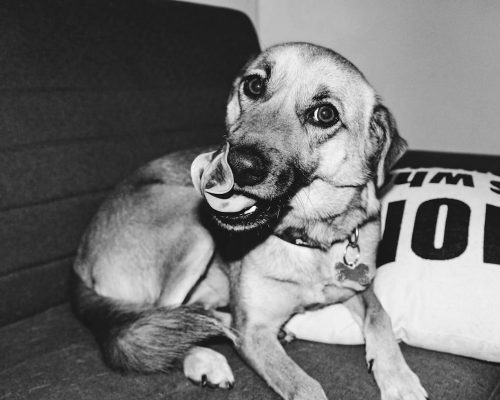The Doberman Pinscher, a breed often synonymous with elegance and vigilance, holds a distinct place among canine companions.
They are renowned for their regal demeanor, unwavering loyalty, and impressive athleticism, Dobermans are more than just guard dogs.
Whether you’re considering bringing one into your home or are simply curious about this remarkable breed, understanding their temperament, care needs, and grooming routines is vital.
This comprehensive guide will walk you through everything you need to know about Doberman Pinschers, ensuring you have all the tools to provide the best life for these devoted canines.
Table of Contents
ToggleOrigin and History of the Doberman Pinscher
The Doberman Pinscher was developed in the late 19th century by Karl Friedrich Louis Dobermann, a German tax collector who sought the perfect balance between loyalty and protection.
By crossbreeding breeds like the Rottweiler, German Pinscher, and Greyhound, Dobermann achieved a dog that was alert, strong, and dependable.
Initially bred for guarding purposes, Dobermans quickly gained popularity as police dogs, military canines, and loyal family protectors. Their history highlights their adaptability and intelligence, which remain their defining traits to this day.
Understanding the Doberman’s Temperament
Loyal and Protective Nature
Dobermans are renowned for their loyalty. They form deep connections with their family members and often shadow their owners, displaying a remarkable attachment. Their innate protectiveness makes them one of the best guardians for homes and families.
Intelligent and Trainable
Ranked as one of the smartest dog breeds, Dobermans are highly trainable and thrive on mental stimulation. They excel in obedience training, agility sports, and working roles. However, their intelligence requires consistent engagement to avoid boredom.
Socialization Requirements
While naturally wary of strangers, proper socialization from puppyhood ensures a well-rounded and confident Doberman. Exposing them to different environments, people, and animals helps curb any tendencies toward overprotectiveness.
Gentle Side
Despite their tough exterior, Dobermans have a surprisingly affectionate side. They adore cuddling with their families and can be gentle companions, especially when raised with love and care.
Is the Doberman a Good Family Dog?
Dobermans can make exceptional family pets when their needs are met. Their protective instincts and loyalty are unmatched, making them dependable watchdogs. They are also excellent with children when properly introduced and trained.
However, due to their size and energy, Dobermans require supervision around small kids. Their enthusiasm may unintentionally knock over a toddler, so teaching children how to interact safely is essential.
Physical Characteristics of the Doberman Pinscher
Sleek and Athletic Build
Dobermans possess a sleek, muscular frame that exudes power and agility. Males typically stand between 26-28 inches tall, while females range from 24-26 inches.
Distinct Coat and Colors
Their short, smooth coat comes in a variety of colors, including black and rust, blue, red, and fawn. The Doberman’s coat requires minimal grooming, yet it adds to their sophisticated appearance.
Iconic Ears and Tail
Traditionally, Dobermans have cropped ears and docked tails, although natural ears and tails are becoming more common. Both forms are equally beautiful, with no impact on the breed’s temperament.
Grooming Care for the Doberman Pinscher
Minimal Shedding but Regular Maintenance
Dobermans are low shedders, but their short hair requires occasional brushing to maintain its glossy shine. A weekly brush with a soft-bristle brush or grooming mitt will keep their coat healthy and reduce shedding.
Bathing and Hygiene
Bathing a Doberman every 6-8 weeks is usually sufficient. Overbathing can strip their skin of essential oils, leading to dryness. Focus on gentle dog-specific shampoos that support their skin health.
Nail Trimming
Due to their active lifestyle, Dobermans may naturally wear down their nails. However, regular nail trimming is necessary to prevent discomfort or injury.
Dental Care
Dental hygiene is crucial for Dobermans. Brushing their teeth 2-3 times a week prevents plaque buildup and ensures fresh breath.
Ear and Eye Cleaning
Regularly inspect their ears for dirt or signs of infection, especially if they have uncropped ears. Wiping their eyes with a damp cloth removes debris and keeps infections at bay.
Exercise Needs of a Doberman
High Energy Levels
Dobermans are high-energy dogs that thrive on physical activity. Daily exercise—whether it’s brisk walks, runs, or play sessions—is non-negotiable.
Mental Stimulation
These intelligent canines need regular mental challenges. Puzzle toys, obedience training, and interactive games help channel their intelligence constructively.
Agility and Sports
Dobermans excel in canine sports like agility, Schutzhund, and obedience competitions. These activities not only meet their exercise needs but also strengthen their bond with owners.
Training Tips for a Doberman Pinscher
Start Early
Early training and socialization are key to developing a well-behaved Doberman. Puppy classes can lay a strong foundation for obedience.
Use Positive Reinforcement
Dobermans respond well to positive reinforcement. Rewarding good behavior with treats, praise, or toys ensures better results compared to harsh training methods.
Consistency is Crucial
Consistency in commands and expectations builds trust and reliability. Dobermans thrive when they understand their role in the household.
Health and Lifespan of Doberman Pinschers
Common Health Issues
Dobermans are prone to certain health conditions, including:
- Dilated Cardiomyopathy (DCM): A heart condition that affects their cardiac muscles.
- Hip Dysplasia: A genetic joint condition.
- Von Willebrand’s Disease: A blood clotting disorder.
Lifespan
With proper care, Dobermans live between 10-13 years. Regular veterinary check-ups, a balanced diet, and exercise play key roles in their longevity.
Feeding and Nutrition for Dobermans
A high-quality, protein-rich diet is vital for a Doberman’s health. Their active metabolism requires food tailored to large, athletic breeds. Avoid overfeeding to prevent obesity, which can exacerbate joint issues.
The Ideal Home for a Doberman Pinscher
Dobermans thrive in homes with ample space to play and exercise. They do best with owners who can dedicate time to training, socialization, and companionship. While they can adapt to apartment living, regular outdoor activity remains a must.
Is the Doberman Right for You?
Owning a Doberman Pinscher is both a commitment and a reward. Their unmatched loyalty, intelligence, and affection make them extraordinary companions.
However, they require responsible ownership, regular exercise, and dedicated care. If you can meet their needs, a Doberman will undoubtedly enrich your life with unwavering devotion and joy.






